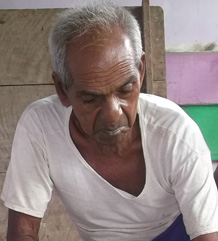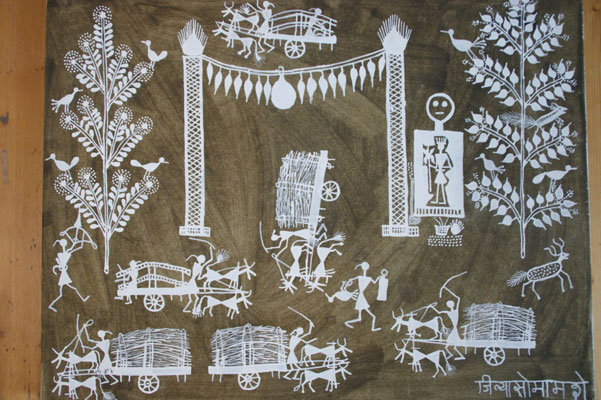Born in 1934 at Ganjad in Maharashtra, Jivya Soma Mashe belongs to the Warli tribal community. The initial inspiration for the Padam Shri and Prince Claus Award recipient folk artist came from the traditional ritual paintings done by the village women with rice paste on mud or cow dung covered thatched walls. The beautiful drawings that the young child drew by hand in the dust as he played around attracted the attention of his elders and he was allowed to assist and thus entered a domain hitherto restricted to women. The exquisite work by the unlettered simpleton Jivya Soma Mashe includes wall paintings executed in natural pigments and materials, using the traditional reed brushes as well as work on paper and canvas. Newer metaphors, such as a train or a bicycle, appear in his images including those of fertility, festivals and rituals. The amazing rural and agrarian landscape of his habitat, with countless moving trails, uneven tracks, and crisscrossing walkways, swarming with birds, insects, animals, trees, hills, along with folk legends appear in his art; while the multitude of stick figures engaged in their daily chores bring alive the energy and dynamics of hinterland India. Exhibited in numerous shows throughout India and in prestigious galleries of Europe, America and the Far East, Jivya’s work can be seen in significant museums and collections in the country and around the world. The artist lives with his family in the village and works from a small corner in his home.



